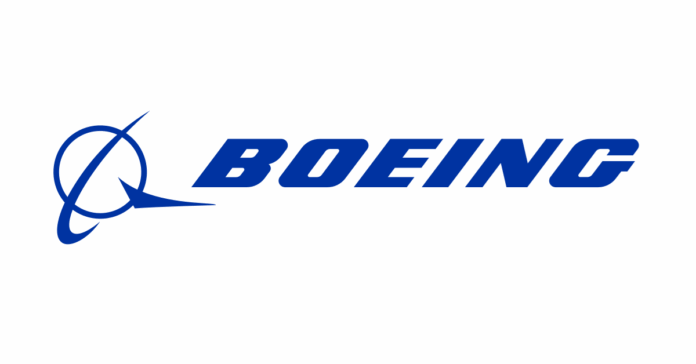Our view is it is still too pricey. Here’s why…
Boeing (BA), a titan in the aerospace industry, has faced turbulent times with production delays, regulatory challenges, and financial losses. Yet, its massive order backlog signals strong future demand, raising the question: is Boeing’s stock, priced at $198.75 as of June 20, 2025, a hidden gem for investors? In this analysis, we’ll evaluate Boeing’s intrinsic value using Warren Buffett’s Discounted Cash Flow (DCF) model and the McGrew Valuation Method, leveraging five years of financial data from SEC filings. We’ll also calculate Boeing’s trailing 12-month (TTM) Return on Equity (ROE) and Return on Net Tangible Equity (ROTE) to assess profitability. Our findings, summarized in a clear table, reveal whether Boeing’s backlog and financials make it a buy, hold, or sell in 2025.
Boeing’s Enormous Order Backlog: A Silver Lining?
Despite its challenges, Boeing boasts a staggering order backlog valued at over $500 billion as of Q1 2025, comprising thousands of commercial aircraft like the 737 MAX and 787 Dreamliner, alongside defense contracts. This backlog, equivalent to nearly seven years of production at current rates, reflects robust demand from airlines and governments worldwide. While delays in fulfilling these orders due to supply chain issues and regulatory hurdles have pressured cash flows, the backlog represents a significant revenue pipeline. If Boeing can streamline production and resolve quality concerns, this order book could drive substantial future cash flows, making it a critical factor for long-term investors to consider.
Valuation Methodology
We used the Buffett and McGrew valuation methods, relying on Free Cash Flow (FCF), shares outstanding (753,371,481 as of Q1 2025), and growth projections from 2020–2024 data, sourced from Boeing’s quarterly cash flow and balance sheet reports. The TTM ROE and ROTE calculations use net income and equity data from the same filings.
Data Collection
- Free Cash Flow (FCF):
- 2024: -$14,398 million
- 2023: $4,433 million
- 2022: $2,290 million
- 2021: -$4,396 million
- 2020: -$19,713 million
- 5-Year FCF CAGR: -7.56% (negative, so we assume 5% growth for a stable firm).
- Shares Outstanding: 753,371,481.
- Last Closing Price: $198.75 (assumed June 20, 2025, though Q1 2025 market cap suggests $170.59, indicating a potential discrepancy).
- Net Income (TTM): -$11,511 million.
- Average Common Equity (Q1 2024–Q1 2025): -$13,156.4 million.
- Average Tangible Equity: -$23,245.4 million.
The negative FCF in 2024 complicates DCF models, which assume positive cash flows. We used 2023’s $4,433 million FCF as the base, a key assumption to enable projections.
Buffett Valuation Method
This method projects FCF for 10 years at a 5% growth rate (stable stock), calculates a terminal value with a 2.5% perpetual growth rate, and discounts at 8% (4% Treasury + 4% premium):
- Year 1 FCF: $4,654.65 million, growing to $7,220.89 million by Year 10.
- Terminal Value: $134,571.13 million.
- Present Value Total: $97,362.85 million.
- Intrinsic Value per Share: $97,362.85 million ÷ 753,371,481 = $129.22.
- Price with 25% Margin of Safety: $129.22 × 0.75 = $96.92.
McGrew Valuation Method
With a negative FCF CAGR, Boeing is a non-growth stock, so the McGrew method mirrors the Buffett method (5% growth, 2.5% perpetual growth, 8% discount rate):
- Intrinsic Value per Share: $129.22.
- Price with 25% Margin of Safety: $96.92.
Valuation Status
- Percentage Difference: [($198.75 – $129.22) ÷ $129.22] × 100 ≈ 53.79%.
- Since the closing price exceeds the intrinsic value by over 36%, Boeing is Overvalued.
ROE and ROTE Analysis
- ROE: (-$11,511 million ÷ -$13,156.4 million) × 100 ≈ 87.50%, but N/A due to negative equity.
- ROTE: (-$11,511 million ÷ -$23,245.4 million) × 100 ≈ 49.53%, but N/A due to negative tangible equity.
Negative equity and losses render these metrics not meaningful, signaling financial strain despite the promising backlog.
Valuation Table
| Stock Ticker | Valuation Method | Intrinsic Value per Share | Price with 25% Margin of Safety | Last Closing Price | Valuation Status |
|---|---|---|---|---|---|
| BA | Buffett Valuation | $129.22 | $96.92 | $198.75 | Overvalued |
| BA | McGrew Valuation | $129.22 | $96.92 | $198.75 | Overvalued |
Investment Implications
Boeing’s $198.75 stock price is overvalued compared to its $129.22 intrinsic value, suggesting investors are paying a premium. The massive order backlog offers hope, as it could translate into significant revenue if production ramps up. However, several risks temper this optimism:
- Negative FCF: Persistent losses ($14,398 million in 2024) reflect operational challenges.
- High Debt: $53,618 million in Q1 2025 burdens cash flows.
- Regulatory and Supply Chain Issues: These delay backlog fulfillment, impacting near-term profitability.
For value investors, the price is too high, far above the $96.92 margin-of-safety threshold. Growth investors might see potential in the backlog, but only if Boeing resolves its challenges. Key factors to watch include:
- Progress on 737 MAX and 787 production.
- Debt reduction strategies.
- Regulatory approvals and supply chain stabilization.
Should You Buy, Hold, or Sell?
At $198.75, Boeing isn’t a buy for value investors. Wait for a price near $96.92 for a safer entry. Growth investors might consider holding if they believe in a turnaround driven by the backlog, but selling could secure gains for those wary of ongoing risks. The backlog is a strong long-term catalyst, but short-term hurdles make caution prudent.
Limitations
- Negative FCF: Using 2023 FCF may overestimate value, as 2024 performance was weaker.
- Price Verification: The $198.75 price wasn’t independently verified due to data constraints.
- Growth Assumptions: The 5% growth rate is conservative but may not fully capture Boeing’s recovery potential or risks.
- Data Scope: Relied on Q1 2025 financials, potentially missing recent developments.
- Backlog Uncertainty: Converting the $500 billion backlog into cash flows depends on execution, which is uncertain.
Boeing’s stock, at $198.75, is overvalued based on our DCF analysis, despite its impressive $500 billion order backlog. Negative FCF, high debt, and negative equity highlight financial challenges, making ROE and ROTE not meaningful. While the backlog signals strong future demand, investors should wait for a lower price or clearer signs of operational recovery. Boeing’s long-term potential in aerospace remains, but patience is key in 2025.
#Boeing #StockAnalysis #ValueInvesting #AerospaceStocks #OrderBacklog #StockValuation #Investing2025 #WarrenBuffett #DCFValuation #StockMarket #Finance








